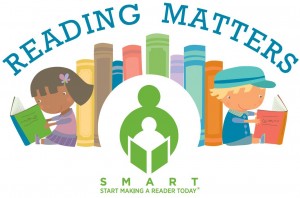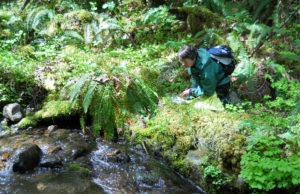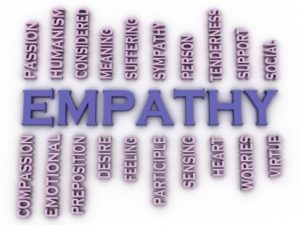

T.J. BROWN BLOG
Writers Give Back: Amber Keyser
Even though Amber Keyser and I live within 15 miles of one another, we actually met more than 100 miles away at a conference on the Oregon coast. I was immediately taken by her sincerity and her dedication to the Portland writing community. It’s no surprise to me that she is also involved in other community projects concerning literacy.
Where have you been volunteering?
This fall my children and I have been volunteering at the Children’s Book Bank as part of my son’s bar mitzvah project. Tikkun olam is a Jewish concept that means repairing the world. It is an important value in our congregation and in our family. We strive to pay attention to ways in which we can make the world a better place.
What have you gotten out of volunteering?
It has been amazing to share this with my kids. In addition to weekly sessions spent cleaning and repairing books, my son ran a book drive that collected over 1200 books to put in the hands of low-income children, many of whom have never owned a single book of their own.
We’ve had fun all along the way. It was especially gratifying for me to see the kids invite their friends to join us. Nothing is better than seeing how a helping hand can multiply. The Children’s Book Bank is a great fit for our family because books and stories are such an important part of our lives. It made us happy to see many favorite titles prepped and ready to go to a new, young reader.
Amber J. Keyser writes both fiction and nonfiction for young adults. Her most recent book is SNEAKER CENTURY: A HISTORY OF ATHLETIC SHOES. Her debut novel, THE WAY BACK FROM BROKEN, will be released in the fall. Find out more about Amber at www.amberjkeyser.com or @amberjkeyser on Twitter.
About the Children’s Book Bank
The Children’s Book Bank, founded by a former Teach for America math teacher, strives to improve the literacy skills of low-income children by giving them books of their own before they reach kindergarten. To do this, The Children’s Book Bank collects, repairs, and packages used books. The books are then made available to families in need – free of charge. This new organization is administrated by Dani Swope and is located in Portland, Oregon.
Writers Give Back: Susan Hill Long
Today, we have Susan Hill Long, an amazing author who lives here in Portland. She volunteers for SMART, (Start Making a Reader Today), an organization that pairs caring, adult volunteers with children in need of reading support and books to take home and keep. SMART volunteers read one-on-one with students weekly during the school year, modeling a love of reading and building children’s reading skills and self-confidence in a positive, child-driven environment.
Why do you volunteer for SMART?
It’s just a good thing to get out and work with people whose circumstances are different than mine. I get so much out of sharing books with kids who might be having some difficulty figuring out this reading thing. To get to be there when they begin to crack that nut? When they read something by themselves, when they get the joke, when they get a glimpse of all the worlds available to them through books? It’s wonderful. For them, and for me.
SMART offers kids in the program the support of an adult to read with for a little while each week, plus they get to take home two books every month–books to write their names in, to keep and share with their families at home. Everybody wins, I think. SMART is always looking for more volunteer readers!
Susan Hill Long is the author of several books for young readers, including Whistle in the Dark, a 2015 Oregon Book Award Finalist.
Writers Give Back: Brenda Novak
I am delighted and humbled to have New York Times best selling author Brenda Novak as a guest on my blog today talking about her cause, diabetes. To date, she’s raised $2.4 million through her annual online auctions, most of which has benefited the cure focused work of the Miami based Diabetes Research Institute. But Novak is changing her approach to fundraising for 2015. She’s published her very first cookbook LOVE THAT! BRENDA NOVAK’S EVERY OCCASION COOKBOOK ($9.99 in digital and $24.99 in print). She’s also curated three limited edition digital box sets filled with brand new stories from some of today’s most popular authors. The proceeds from all three box sets and the cookbook will go to research.
For Novak, fundraising is a labor of love and a concentrated effort to find a cure for her son, who has lived with diabetes since he was five years old. The Diabetes Research Institute, a center of excellence at the University of Miami Miller School of Medicine, is a recognized world leader in cure focused research. Since its inception in the early 1970s, the DRI has made significant contributions to the field of diabetes research, pioneering many of the techniques used in islet transplantation.
Why is giving back so important to you?
I think it’s essential to living a fully balanced life. Running my charity has been a challenge at times, but it’s also been one of the most rewarding things I’ve ever done.
Why is diabetes research such a passion of yours?
When my son was diagnosed at just five years old, and I learned the terrible side effects he’d likely face in his lifetime, I had to do something. I knew I could not stand idly by and watch him suffer. Not only that, but the statistics for diabetes are alarming. It’s becoming a bigger and bigger problem as time goes by.
You can check out more about Brenda’s work and purchase her cookbook and boxed sets at www.brendanovakforthecure.org
Writers Give Back: Nancy Tague
Today we have Nancy Tague at the blog, an author whose love for nature dictated her community involvement. She volunteers for the Glide Wildflower Show which has been running 1965. The Glide Wildflower Show is the largest display of native flora in the northwest. Over 600 species of flowers, shrubs, grasses, ferns, lichens and mosses are gathered by dozens of collecting teams who travel throughout southwest Oregon from the Cascade Mountains to the coast. The show, which originally began as a fund raiser for the Glide Community Center now attracts visitors from as far away as Australia and Europe.
Why do you volunteer for the wild flower show?
I first got involved with the Glide Wildflower show because I wanted to learn about the wildflowers in my own backyard. I had only lived in Oregon a few years and didn’t know names for the plants I saw. A very knowledgeable neighbor and long-time show volunteer invited me to help her collect, and I leaped at the opportunity to learn from her and to get to know her better. That led eventually to taking over the collecting route and doing other jobs for the show that utilized my skills: computers, writing, general leadership, and sharing the knowledge I have gained.
I continue to volunteer with the show for a variety of reasons. It’s fun – I get to spend time in the forest and find these beautiful little treasures that otherwise I might not even notice. It widens my circle — I have made friends with interesting, like-minded people. It helps me learn – every year I pick up a little bit more about botany and native plants. It connects me to my community – this 50-year-old event, he biggest wildflower show in the Pacific Northwest, is a source of pride for this little town and brings together hundreds of volunteers. And it puts my ideals into action – I believe the natural environment is essential for humanity’s physical and spiritual well-being, but is in critical danger because of people’s actions. Because the show’s purpose is to educate the public about the value and importance of native plants, it lets me do something right here in my own community to encourage appreciation of the environment.
Why do you feel volunteering is important?
I’ve volunteered in many different ways ever since I was a teenager. The various reasons I volunteer for the wildflower show – fun, meeting people, learning, connecting to community – might not all be present in a particular volunteer activity. But putting my ideals and values into action always is, whether the value is environment, reading and education, or world peace. I see things that I believe should to be done to make this world a better place. Some of them are right here in my neighborhood. Someone needs to do it – why not me? I can’t do everything, but I can do a little. I can do my part to make the changes I’d like to see happen. That’s why I think volunteering is important. If everyone did a little bit, we’d have an army of millions making the world better, in millions of different ways.
What do I get out of it? Obviously, having fun, meeting people, and learning are immediate paybacks. I must confess that I feel pleased when other people appreciate something I have helped develop. But it also feels good simply to use my skills, interests, and personal qualities. And it feels good to know I’ve made a difference, even a little bit of a difference.
Nancy Tague retired to 20 acres of forest in southwest Oregon where she reads, writes, gardens, and volunteers. Her stories and articles have been published in various children’s magazines, and she recently completed a historical book manuscript.
Writers Give Back: Angela Giles Klocke
I’ve known Angela online for about 13 years and though we’ve never met in person, I’ve always found her inspiring and hope you do too.
Why do you feel volunteering is important?
I’ve always had a “give back” mentality. I’m sure it stems from my own past of need and pains, so when I lived in Georgia, when my painful past came to an end (so to speak), I wanted to be the one who was there for others. I started a support group for teen parents, worked with the Teen Pregnancy Prevention Task Force, and began my own small organization to send gifts and love to teen parents. I honestly think doing all of that helped me on my own path to healing. It always felt so wonderful to sit across from those young parents and give them hope and encouragement.
Where do you volunteer now?
When I moved to Colorado, I had bigger hopes. It didn’t take long before I found my local pregnancy center and realized their goals were the same I had had, only they were able to help so many more. I started off working with them on a small scale, first just being there to get educated, then speaking at a fundraising event, and then answering the call to clean the center. Yes, cleaning. With all my experience, I really started by cleaning the toilets. I felt called to start there, and it was from there that I learned to become truly comfortable as I was still battling my own demons of the past, namely fear and anxiety.
After a year of cleaning, in which I took classes to become a one-on-one mentor, I officially moved to mentoring only. I was specific with which clients I wanted to work with: teen parents. Though I’ve worked with a few older moms, my call is to walk this journey with teens. I love the bonds I form with each of these young moms (sometimes dads), and most have stayed in touch even after leaving the Earn While You Learn program. I teach parenting classes, but more than that, I get to really connect heart to heart.
In addition, I offer my photo services to clients at the center. Again, I have a focus on teen parents, but I have photographed all across the board. In 2013, I was able to help the center create a full calendar (for 2014) to gift to donors, and that means all the “models” received free photo shoots and photos as well. We went a bit smaller for the 2015 calendar, creating a simple refrigerator magnet, but again, it led to a client receiving photos they might not have otherwise been able to have of their newborn precious baby.
Whether it’s time or talent, I believe we all have something to give. I volunteer pretty exclusively for CHOICES because their mission is exactly what I wish I had had when I was a teen mom, and because I walked too much of my own journey alone. If I can be one person or part of a village for each teen parent, I feel like I’ve achieved something great in this world.
You can learn more about Angela at her website, Love Your Everyday Life.
Writers Give Back: Dawn Prochovnic
My first guest in my blog series on Writers and Altruism is Portland author Dawn Prochovonic.
Why is volunteering important to you?
Volunteering is important to me on many different levels, and it has opened my heart and mind in unexpected ways. Volunteering helps me feel connected and involved with my local community. It’s also a way for me to model for my children how to contribute to a community. Volunteering is something I enjoy doing with other families, and many of the friendships I now enjoy grew out of volunteer projects shared with others. Volunteer work provides subtle reminders to keep the obstacles and disappointments in my own life in perspective, and in many cases, I’ve learned valuable new skills while volunteering. Whether on an emotional level or a practical level, I always feel richer for the experience.
Why do you volunteer for The Beaverton Clothes Closet?
The Beaverton Clothes Closet is an outreach of the Beaverton School District. Each school in the district supplies volunteers to staff the Clothes Closet once each week. The first time I volunteered for this organization it was because my neighborhood school needed to fill slots for their scheduled shift, and I happened to be available to assist. I found the experience extremely humbling and rewarding. I was able to see, first hand, children’s needs being met and the relief on parents’ faces when they were able to secure needed clothing for their children. The number of families seeking assistance was astounding to me. I was reminded in a very potent way of the simple comforts my family enjoys each and every day, and how even though we are full of gratitude, the reality is that we take many seemingly simple comforts for granted. I went straight home and dug through closets and drawers and gathered up most-needed items such as shoes, coats and blue jeans to donate . . . and I have volunteered for the organization ever since.
You can find more information on the Beaverton Clothes closet, here, and you can find their faq’s here.
Dawn Prochovnic is the author of 16 picture books for children, including, “The Nest Where I Like to Rest,” a 2011 Oregon Book Awards Finalist. Dawn speaks regularly at schools, libraries and professional development conferences throughout the Pacific NW. Learn more at www.dawnprochovnic.com.
Writers and Altruism
One of the resolutions I made this year, (and yes, I do resolutions), was to volunteer fifty hours over the next twelve months. As I write this, I have managed zilch. Good intentions, but a serious lack of follow through. I think part of the problem is that I’m incredibly busy. I know, I know, is that an excuse? Well, sort of. But not good enough. Surely, I can find a few hours a month to donate to a worthy cause!
I’ve always felt that volunteerism is important though I admit to doing much more when the children were at home. As part of their overall education, I felt it was important that they understand that there were many people who are less privileged. As a unit of three, the kids and I volunteered at the library, the city of Tigard, Meals on Wheels, the Tualatin River Keepers, etc. I was on the board of directors for the local skate club and also ran a book club at a community center for teens at a low income housing project.
But at some point, between the deadlines, the cancer, and the three jobs, I stopped volunteering and I have to admit that I miss it because quite frankly, it made me feel good. That’s the magical thing about volunteering. Yes, you’re helping out someone in need, but you’re also getting something out of it.
Writers tend to have a high level of empathy. Many of us can not only imagine walking in another person’s shoes, we can get a close approximation of what it’s like to live INSIDE THEIR SKIN. Which is helpful as we attempt to create fully realized characters, but also painful because the world can be a brutal place.
But volunteering can make the world seem a little less harsh. As someone who tends to spend a lot of time inside my own head, stepping outside of that to concentrate on the needs of others is a good thing.
I am behind eight hours… this will be the month I catch up.
Photo courtesy of David Castillo Dominici and freedigitalphotos.net
Writers and Mental Health Wrap Up
For the past month, I’ve been covering different strategies writers, (or anyone), can use to protect their mental health. Mental health is just as important as physical health and are as intrinsically tied as the ocean and the moon—something that was brought to my attention this past week in a very real way.
I’ve been doing a thirty session Headspace meditation on anxiety. During the past few weeks, I’ve learned a technique called noting. Basically, if I’m distracted during my meditation, I label the distraction as a feeling or thought, whether it’s pleasant, unpleasant or neutral, and then I identify what mood or emotion it provokes. The trick is to take that technique and apply it to the rest of your life. While I realized that my mind could affect my body, I never understood just how my body could affect my mind. Having had cancer, I do get how chronic pain can cause depression, but I never understood how your body can cause anxiety.
I’ve been working out on an average of six days a week and I get hungry. Like, powerful hungry. On the way home from an event, I started having anxious thoughts about my grown children. I fretted about everything—if there was something to worry about, my mind went there. I realized I was on the verge of a full blown panic attack and even my stomach felt… then it dawned on me. My stomach felt hungry.
I was hungry.
The pangs of hunger were actually producing anxious thoughts. This time, instead of my mind affecting me physically, my physical self was affecting my mind.
I don’t understand why it took me so long to realize this. I’ve often known that anxious/tense/pissy feelings were often cyclic and caused by hormone fluctuations and my family knew better than to mess with me when I was tired. But hunger?
It was in that moment that the mind body connection became incredibly clear to me. The mind affects the body, the body affects the mind. In order for protect your mental health you have to take care of yourself both physically and mentally. Journaling, meditation, exercise and healthy food are just strategies to help do that and I hope the series was helpful.
Take care of you!
Image courtesy of Master and freedigitalphotos.net
Guest Post: Depression Sucks by Author Heather Brewer
When I started this series on writers and mental health, I added a million disclaimers. What I wanted was a series of posts on strategies to help authors protect their own mental health–I didn’t want anyone to think I had a fix for those who suffer from serious depression. The things I wrote about: meditation, healthy diet, journaling & exercise, are just strategies. But I also wanted to address serious depression, and I envisioned this amazing and fabulous post by my friend and fellow author, Heather Brewer, because:
- She’s an amazeballs writer.
- She’s incredibly compassionate.
- She battles serious depression.
It’s even more awesome than I thought it would be.
Depression Sucks
TRIGGER WARNING: The following blog post is about depression, suicide, self-harm, anxiety, and all sorts of unpleasantness. If you feel you may be triggered by these things, please don’t read it. And remember—Auntie Heather loves you.
Depression sucks.
Can I just put that out there? It sucks and it often feels like there is no end to it at all and the worst part is that no one wants to talk about it. So those who suffer from it feel isolated and weird, which only manages to feed the beast. The beast grows bigger, until it’s the only thing in the world that someone who suffers from it can see. It’s ugly and horrible and feels so damn inescapable.
I know. I have depression. I also have Obsessive Compulsive Disorder and anxiety. I suffer from bouts of suicidal tendencies. I attempted suicide when I was sixteen. Tried to hang myself in a closet. The bar broke, and until recent years, I never told anyone about it. But I’m becoming more vocal about such things now. Mostly because I noticed that no one wants to talk about it.
That makes me angry, if you want to know the truth. So many of us are suffering from mental health issues, but there’s still such a stigma attached to it. I want to change that, if I can. Even in a small way. If you watch my vlogs or follow me on social media, you’ve probably heard me talk quite openly about my mental health. When I do so, I notice that a lot of people get quiet. Maybe they don’t like the squicky way the subject makes them feel. Maybe they don’t know what to say or how to help. Maybe they have these issues too and aren’t ready to talk about them. Maybe they just wish I’d shut up.
But I won’t shut up. Because I am not ashamed. After all, I have nothing to be ashamed of.
I have, for as long as I can remember, had these issues. I see the anxiety in my daughter already—apparently I gave her that little gem of DNA to deal with for the rest of her life (sorry, kid). But no one ever told me, throughout my childhood, throughout my teen years, throughout much of my adulthood, that having mental health issues doesn’t mean there’s anything wrong with you. It just means that you have health issues that you need to manage. For me, that means therapy, meditation, and medication. For you, it might mean something different. But it begins with coming out of the mental health closet and saying, even to yourself, “This is how I am, and it’s okay—I can get help.”
Recent years have been a major challenge for me. I self-harmed, planned out a suicide attempt, and said goodbye to the world. But then something funny happened. I got sick with severe anemia and stuck in the hospital for days. (Okay, maybe not funny ha-ha) But the thing is, lying in that hospital bed gave me a lot of time to think. I didn’t think I wanted to live. But what I did think was a question.
“Have I really tried everything possible to make myself better?”
The answer was no. I had not yet tried medication. So I made myself a promise and gave medication a go. So far, the meds are working. Every day is not sunshine and rainbows. And some days, yes, I still have dark thoughts, and wonder if I can bear to keep going. But the answer is yes. I can. Because of you, Minions. I can’t leave you alone to face the darkness. I won’t.
So when you’re there, in that dark place, and you feel like you’re all alone…just reach out and give my hand a squeeze. Because I’m here. And we’ll get through it.
Together.
RESOURCES:
• The American Psychological Association (www.apa.org)
• The American Association of Child and Adolescent Psychiatry (www.aacap.org)
• National Suicide Prevention Lifeline 1-800-273-TALK (www.suicidepreventionlifeline.org)
The National Suicide Prevention Lifeline’s mission is to provide immediate assistance to individuals in suicidal crisis by connecting them to the nearest available suicide prevention and mental health service provider through a toll-free telephone number: 1-800-273-TALK (8255).
VELVET UNDERCOVER
I love all my covers, but this might just be the loveliest one yet! Observe the pretty! 
Samantha Donaldson’s family has always done its duty for the British Crown. In the midst of World War I, seventeen-year-old Sam follows in their footsteps, serving her country from the homefront as a Girl Guide and messenger for the intelligence organization MI5. After her father disappears on a diplomatic mission, she continues their studies of languages, high-level mathematics, and complex puzzles and codes, hoping to make him proud.
When Sam is asked to join the famed women’s spy group La Dame Blanche she’s torn—this could be the adventure she’s dreamed of, but how can she abandon her mother, who has already lost a husband to the war? But when her handlers reveal shocking news, Sam realizes there’s no way she can refuse the exciting and dangerous opportunity.
Her acceptance leads her straight into the heart of enemy territory on a mission to extract the most valuable British spy embedded in Germany, known to the members of LDB only as Velvet. Deep undercover within the court of Kaiser Wilhelm II, Samantha must navigate the labyrinthine palace and its many glamorous—and secretive—residents to complete her assignment. To make matters worse she finds herself forming a forbidden attraction to the enemy-a dangerously handsome German guard. In a place where personal politics are treacherously entangled in wartime policy, can Samantha discover the truth and find Velvet before it’s too late…for them both?
From author Teri Brown comes the thrilling story of one girl’s journey into a deadly world of spycraft and betrayal—with unforgettable consequences.
Teri Brown Books | Site Content Copyright © 2025 All Rights Reserved











Recent Comments